
Mbira are a family of musical instruments, traditional to the Shona people of Zimbabwe. They consist of a wooden board with attached staggered metal tines, played by holding the instrument in the hands and plucking the tines with the thumbs, the right forefinger, and sometimes the left forefinger. Musicologists classify it as a lamellaphone, part of the plucked idiophone family of musical instruments. In Eastern and Southern Africa, there are many kinds of mbira, often accompanied by the hosho, a percussion instrument. It is often an important instrument played at religious ceremonies, weddings, and other social gatherings. The "Art of crafting and playing Mbira/Sansi, the finger-plucking traditional musical instrument in Malawi and Zimbabwe" was added to the UNESCO Representative List of the Intangible Cultural Heritage of Humanity in 2020.

Zimbabwean music is heavily reliant on the use of instruments such as the mbira, Ngoma drums and hosho. Their music symbolizes much more than a simple rhythm, as the folk and pop style styled music was used as a symbol of hope for Zimbabweans looking to gain independence from Rhodesia. Music has played a significant role in the history of Zimbabwe, from a vital role in the traditional Bira ceremony used to call on ancestral spirits, to protest songs during the struggle for independence. The community in Zimbabwe used music to voice their resistance to their oppression, as one of the only weapons they had available to fight back with. In the eighties, the Music of Zimbabwe was at the center of the African Music scene thanks to genres such as Sungura and Jit. However, several performers were banned by state TV and radio leading to the closing of several music venues.
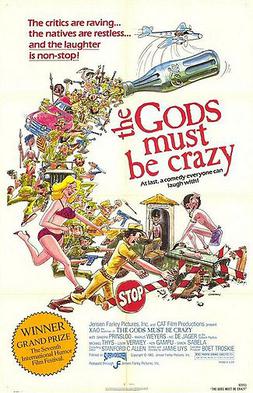
The Gods Must Be Crazy is a 1980 comedy film written, produced, edited and directed by Jamie Uys. An international co-production of South Africa and Botswana, it is the first film in The Gods Must Be Crazy series. Set in Southern Africa, the film stars Namibian San farmer Nǃxau ǂToma as Xi, a hunter-gatherer of the Kalahari Desert whose tribe discovers a glass Coca-Cola bottle dropped from an aeroplane, and believe it to be a gift from their gods. When Xi sets out to return the bottle to the gods, his journey becomes intertwined with that of a biologist, a newly hired village school teacher, and a band of guerrilla terrorists.
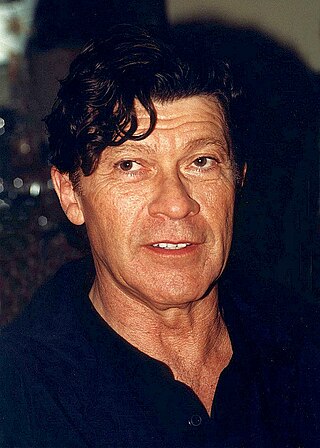
Jaime Royal "Robbie" Robertson was a Canadian musician of Indigenous ancestry. He was lead guitarist for Bob Dylan in the mid-late 1960s and early-mid 1970s, guitarist and songwriter with The Band from their inception until 1978, and a solo artist.
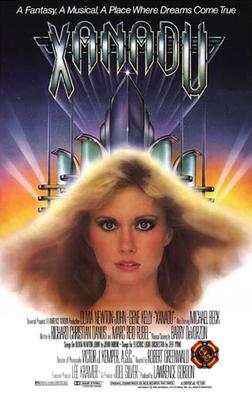
Xanadu is a 1980 American musical fantasy film written by Richard Christian Danus and Marc Reid Rubel and directed by Robert Greenwald. The film stars Olivia Newton-John, Michael Beck, and Gene Kelly in his final film role. It features music by Newton-John, Electric Light Orchestra, Cliff Richard and the Tubes. The title is a reference to the nightclub in the film, which takes its name from Xanadu, the summer capital of Kublai Khan's Yuan dynasty in China. The city appears in Kubla Khan by Samuel Taylor Coleridge, an 1816 poem quoted in the film.

Vision Quest is a 1985 American coming-of-age romantic drama film starring Matthew Modine, Linda Fiorentino, Michael Schoeffling, and Ronny Cox. It is based on Terry Davis's 1979 novel of the same name.

Warren Ellis is an Australian musician and composer. He is a member of the rock groups Dirty Three and Nick Cave and the Bad Seeds. He also performed with the band Grinderman until its disbandment in 2013. He has also composed film scores with long-time friend, collaborator and band-mate Nick Cave. Ellis plays the violin, piano, accordion, bouzouki, guitar, flute, mandolin, mandocello and viola. He has been a member of Nick Cave and the Bad Seeds since 1994.
K-Ci & JoJo is an American R&B duo, consisting of brothers Cedric "K-Ci" Hailey and Joel "JoJo" Hailey. Natives of Charlotte, North Carolina, they are also the lead singers of the chart-topping R&B group Jodeci with the DeGrate brothers—Donald and Mr. Dalvin. They are known for the 1998 smash hit "All My Life" which was the No.1 song on the Billboard Hot 100 for three weeks and received multiple Grammy nominations. They were also featured artists on another No.1 Billboard Hot 100 hit single, 2Pac’s 1996 song "How Do U Want It", which also received a Best Rap Performance by a Duo or Group Grammy nomination in 1997. K-Ci & JoJo also achieved mainstream success with the 1999 hit "Tell Me It's Real", which peaked at No.2 on the Billboard Hot 100. Their 2001 song "Crazy" was included on the Save the Last Dance soundtrack and peaked at No.11 on the Billboard Hot 100.
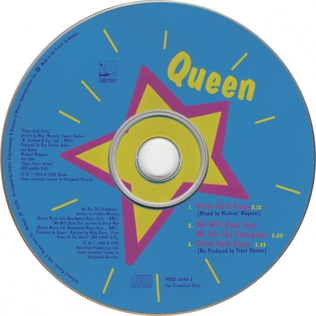
"Stone Cold Crazy" is a song written and performed by British rock band Queen for their 1974 album Sheer Heart Attack. It is a rare, early example of all four members sharing a writing credit. Although the song was not released as a single at the time, it was performed live at almost every Queen concert from 1974 to 1978. "Stone Cold Crazy" is included on the band's 1992 compilation album, Classic Queen and was released as a promo single in that year by Hollywood Records.
"Alone (Why Must I Be Alone)" is a popular song written by Morty Craft with lyrics written by Craft's wife, Selma..

Animals Are Beautiful People is a 1974 South African nature documentary written, produced, directed, filmed and edited by Jamie Uys, about the wildlife in Southern Africa, presented with comedic elements. It was filmed in the Namib Desert, the Kalahari Desert and at the Okavango River and Okavango Delta. It was the recipient of the 1974 Golden Globe Award for Best Documentary Film.

Andrew Tracey is a South African ethnomusicologist, promoter of African music, composer, folk singer, band leader, and actor. His father, Hugh Tracey (1903–1977), pioneered the study of traditional African music in the 1920s–1970s, created the International Library of African Music (ILAM) in 1954, and started the company African Musical Instruments (AMI) which manufactured the first commercial kalimbas in the 1950s.

200 Motels, the soundtrack album to Frank Zappa's film of the same name, was released by United Artists Records in 1971. The original vinyl release was a two-record set, largely containing alternating tracks of rock music performed by the Mothers of Invention and symphonic music performed by the Royal Philharmonic Orchestra conducted by Elgar Howarth, all composed and orchestrated by Zappa. The album peaked at No. 59 on the Billboard 200, though reviewers deemed it a peripheral part of Zappa's catalog. Like the film, the album involves the theme of a rock band on tour and a loose storyline about The Mothers of Invention going crazy in the small town of Centerville and bassist Jeff quitting the group, as did his real life counterpart, Jeff Simmons, who left the group before the film began shooting and was replaced by actor Martin Lickert for the film.
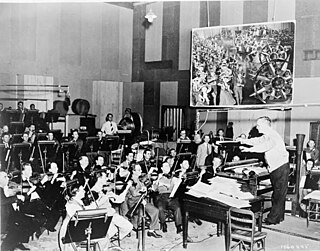
The songs from the 1939 musical fantasy film The Wizard of Oz have taken their place among the most famous and instantly recognizable American songs of all time, and the film's principal song, "Over the Rainbow", is perhaps the most famous song ever written for a film. Music and lyrics were by Harold Arlen and E.Y. "Yip" Harburg, who won an Academy Award for Best Song for "Over the Rainbow."

Snow White and the Seven Dwarfs is the soundtrack from the 1937 Walt Disney film, notable as the first commercially issued soundtrack album. The recording has been expanded and reissued numerous times following its original release in January 1938 as Songs from Walt Disney's Snow White and the Seven Dwarfs .
Ysanne Spevack is a British-American and composer, conductor and arranger who plays violin, viola and cello, and assorted multi-instruments including mbira, keyboards and guitar. best known for her work recording and touring with the Smashing Pumpkins, David J, Michael Stipe, Tiesto, Elton John, Christina Perri, Hawkwind, Psychic TV, and Asian Dub Foundation. Since 2016, she has been known as Meena Ysanne.

House Party: Original Motion Picture Soundtrack is the soundtrack album to Reginald Hudlin's 1990 musical comedy film House Party. It was released through Motown on March 9, 1990 along with the film, and consisted of a blend of hip hop and R&B music. Recording sessions took place at Mastersound Recording Studios in Atlanta, and New York-based studios Romil Recording, Sigma Sound Studios, Skyline Studios, Greene Street Recording Studio, Bayside Sound Recording Studio, Marley's House, Pearl Street Studios. Production was handled by Gene Griffin, Hurby "Luv Bug" Azor, The Invincibles, Artz & Kraftz, Charles Ernst, Eric "Vietnam" Sadler, Full Force, Hank Shocklee, Keith Shocklee, Kenny Pollock, Kenny Vaughan and Marley Marl, with film director Reginald Hudlin and film producer Warrington Hudlin served as executive producers. It features contributions from film stars Kid 'n Play, as well as Artz & Kraftz, Cheryl Pepsii Riley, E-Crof, Ex-Girlfriend, Flavor Flav, Force MDs, Kenny Vaughan, Lisa Lisa and Cult Jam, LL Cool J, Marley Marl, The Art of Love, Today and UTFO.
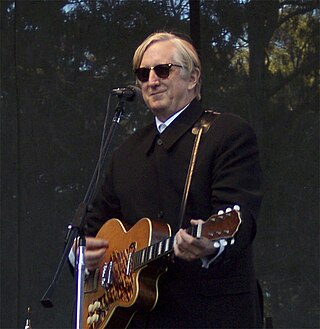
Joseph Henry "T Bone" Burnett III is an American record producer, guitarist, and songwriter. He was a guitarist in Bob Dylan's band during the 1970s. Burnett has won several Grammy Awards for his work on film soundtracks, namely O Brother, Where Art Thou? (2000), Cold Mountain (2004), Walk the Line (2005), and Crazy Heart (2010). He won another Grammy for producing the album Raising Sand (2007), in which he united the contemporary bluegrass of Alison Krauss with the blues rock of Robert Plant.

Filter is an American rock band formed in 1993 in Cleveland, Ohio, by singer Richard Patrick and guitarist and programmer Brian Liesegang. The band was formed when Patrick desired to start his own band after leaving Nine Inch Nails as their touring guitarist. Their debut album, Short Bus (1995) received platinum certification by the Recording Industry Association of America (RIAA), supported by the single "Hey Man Nice Shot." After the album, the band would go through the first of many lineup changes, leaving Patrick as the only consistent member across all releases.
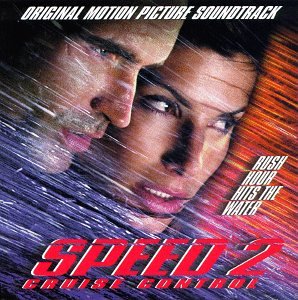
Speed 2: Cruise Control is the soundtrack album for the 1997 film of the same name. It was released by Virgin Records in May 1997, nearly a month before the film's release. Because of the film's Caribbean setting, the soundtrack features a variety of reggae music from artists including Common Sense, Jimmy Cliff, Maxi Priest and Shaggy. UB40, Carlinhos Brown and Tamia also have songs on the soundtrack, and appear in the film as entertainers on the cruise ship.

















